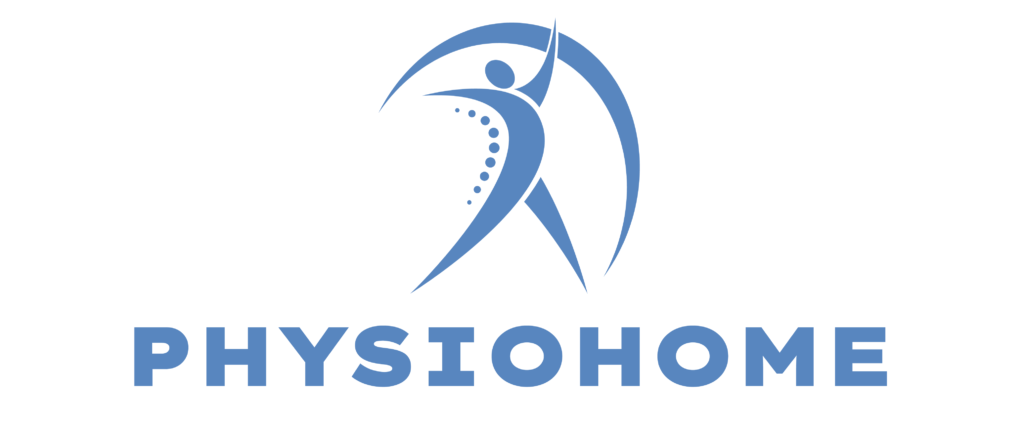In a world where pain seems to be an inevitable part of life, finding effective solutions to manage and alleviate it is paramount. While medications may offer temporary relief, they often come with side effects and do not address the root cause of the pain. This is where physiotherapy emerges as a beacon of hope, offering holistic and sustainable solutions to individuals seeking to break free from the shackles of pain. Physiotherapy is not merely about treating symptoms; it is about empowering individuals to take control of their health and well-being. By utilizing a combination of tailored exercises, manual therapy techniques, and education, physiotherapists work hand in hand with their patients to restore mobility, alleviate discomfort, and prevent recurrence of pain. In this blog post, we delve into the transformative potential of physiotherapy and explore how it serves as the key to unlocking a life free from the constraints of pain. Join us on this journey to discover the power of physiotherapy in reclaiming your vitality and embracing a pain-free existence.
Empowerment Through Movement: The Role of Exercise in Physiotherapy
In the realm of physiotherapy, movement is not just a means of staying active; it’s a powerful tool for healing and empowerment. From targeted exercises designed to strengthen weakened muscles to functional movements aimed at restoring mobility, the role of exercise in physiotherapy cannot be overstated. In this exploration, we delve into the transformative impact of movement-based interventions and how they empower individuals to take control of their health and well-being.

Strengthening Weaknesses
One of the primary goals of exercise in physiotherapy is to strengthen weakened muscles and improve overall muscle function. Through targeted resistance training and progressive overload, individuals can rebuild strength lost due to injury, surgery, or prolonged inactivity. Whether it’s rehabilitating a sprained ankle or recovering from a stroke, strengthening exercises form the cornerstone of many physiotherapy programs.
Restoring Mobility
Loss of mobility can significantly impact one’s quality of life, making simple tasks like walking, reaching, or bending painful and challenging. Exercise plays a pivotal role in restoring mobility by improving flexibility, joint range of motion, and proprioception. Physiotherapists prescribe a variety of stretching, mobilization, and range-of-motion exercises to help individuals regain functional movement patterns and reclaim their independence.
Enhancing Stability and Balance
Maintaining stability and balance is crucial for preventing falls and injuries, especially in older adults and those with neurological conditions. Physiotherapy utilizes balance training exercises, proprioceptive drills, and core stabilization routines to enhance postural control and reduce the risk of falls. By improving balance and proprioception, individuals can move with confidence and reduce their reliance on assistive devices.
Functional Movement Training
Beyond isolated exercises, physiotherapy emphasizes functional movement training, which focuses on performing activities of daily living with proper biomechanics and efficiency. Functional exercises mimic real-life movements and help individuals transfer their gains in strength, flexibility, and balance to everyday tasks. Whether it’s lifting groceries, climbing stairs, or playing with grandchildren, functional movement training enhances overall functional capacity and promotes independence.
Pain Management through Movement
Contrary to conventional wisdom, movement can be an effective strategy for managing pain. Physiotherapy utilizes therapeutic exercises to alleviate pain, improve circulation, and promote tissue healing. By engaging in controlled, graded movements under the guidance of a physiotherapist, individuals can desensitize their nervous system, reduce muscle tension, and break the cycle of chronic pain.
Prevention is Key: How Physiotherapy Helps Avoid Pain and Injury
In a world where prevention is often overshadowed by treatment, physiotherapy stands out as a proactive approach to maintaining optimal health and well-being. By addressing risk factors, improving biomechanics, and enhancing movement patterns, physiotherapy plays a pivotal role in preventing pain and injury before they occur. In this discussion, we delve into the preventive strategies offered by physiotherapy and how they empower individuals to live active, pain-free lives.
Ergonomic Assessments and Workplace Wellness
For many individuals, the majority of their day is spent in the workplace, where ergonomic factors can significantly impact musculoskeletal health. Physiotherapists conduct ergonomic assessments to identify ergonomic hazards and recommend ergonomic modifications to improve workstation setup, posture, and movement mechanics. Workplace wellness programs further promote employee health and productivity by integrating ergonomic principles into daily routines.
Sports-Specific Conditioning
Athletes are particularly susceptible to sports-related injuries due to the repetitive nature of their activities and the demands placed on their bodies. Physiotherapy offers sports-specific conditioning programs designed to optimize athletic performance, reduce injury risk, and enhance recovery. By incorporating strength training, flexibility exercises, and sport-specific drills, athletes can improve biomechanical efficiency and resilience on the field or court.
Fall Prevention for Older Adults
Falls represent a significant health risk, especially among older adults, often leading to fractures, head injuries, and loss of independence. Physiotherapy plays a crucial role in fall prevention by assessing balance, gait, and mobility impairments and implementing targeted interventions to improve stability and reduce fall risk. Exercise programs, home safety assessments, and assistive devices help older adults maintain their mobility and autonomy as they age.
Movement Optimization
Optimizing movement mechanics is fundamental to preventing pain and injury across all age groups and activity levels. Physiotherapists analyze movement patterns to identify biomechanical inefficiencies and implement corrective strategies through targeted exercises, manual therapy, and movement re-education. By promoting proper movement mechanics, individuals can reduce joint stress, minimize tissue overload, and prevent overuse injuries.
Injury Prevention Education
Knowledge is power when it comes to injury prevention. Physiotherapists educate individuals on injury risk factors, warning signs, and preventive strategies to empower them to make informed decisions about their health and activity levels. From proper warm-up and cool-down techniques to injury-specific prevention strategies, education plays a vital role in empowering individuals to take proactive measures to safeguard their well-being.
Breaking Barriers: Accessing Physiotherapy for All
Access to physiotherapy shouldn’t be a privilege; it should be a right. Yet, many barriers prevent individuals from benefiting from its transformative effects. Let’s explore key strategies to ensure that everyone can access the care they need for a pain-free life.
- Tele-rehabilitation: Utilizing technology to provide remote physiotherapy sessions, overcoming geographical constraints and increasing accessibility.
- Community Outreach Programs: Bringing physiotherapy services to underserved communities through mobile clinics and partnerships with community centers.
- Insurance Coverage: Advocating for comprehensive insurance coverage that includes physiotherapy services, ensuring affordability for all.
- Financial Assistance Programs: Implementing subsidies or sliding-scale payment options to accommodate individuals with limited financial means.
Conclusion
It’s evident that physiotherapy holds the key to unlocking a pain-free life. Through tailored exercises, manual therapy, and education, individuals can effectively manage and overcome a wide range of physical ailments, from chronic pain to post-injury rehabilitation. By addressing the root causes of discomfort and empowering patients with the knowledge and tools to take control of their health, physiotherapy offers a holistic approach to wellness that promotes long-term relief and improved quality of life.
For more information on how Physiohome in Ras Al Khaimah, United Arab Emirates, can help you achieve a pain-free lifestyle, don’t hesitate to reach out to us at +971 52 730 9683. Our dedicated team of physiotherapists is committed to providing personalized care and support tailored to your unique needs. Say goodbye to pain and hello to a healthier, happier you with Physiohome.

